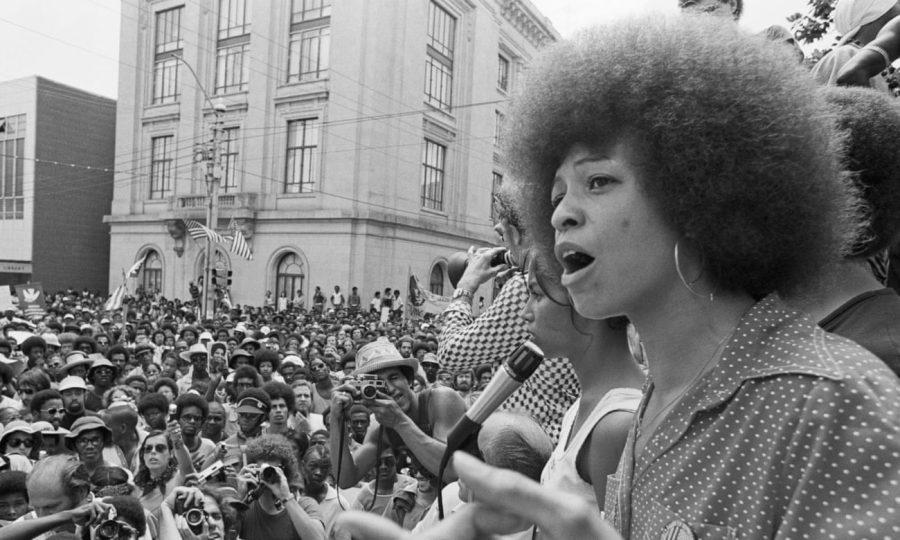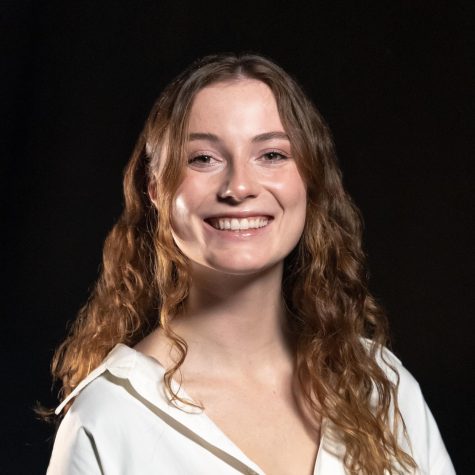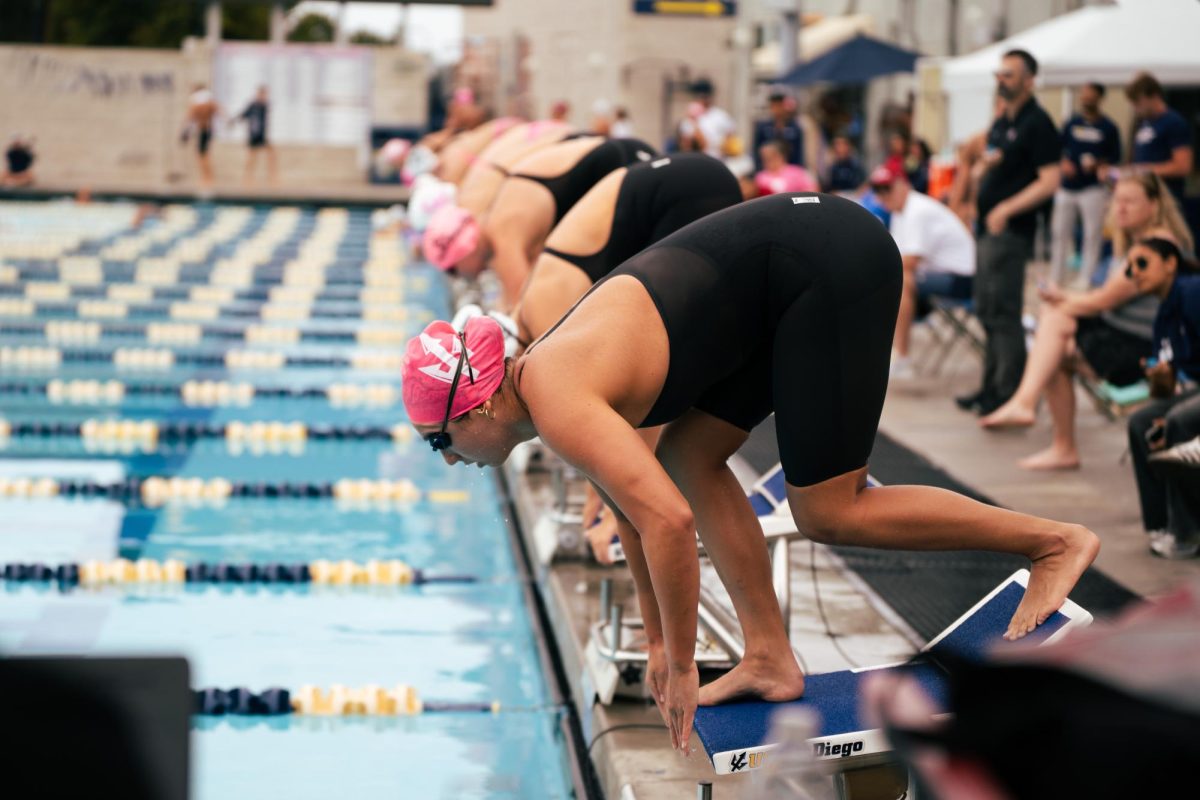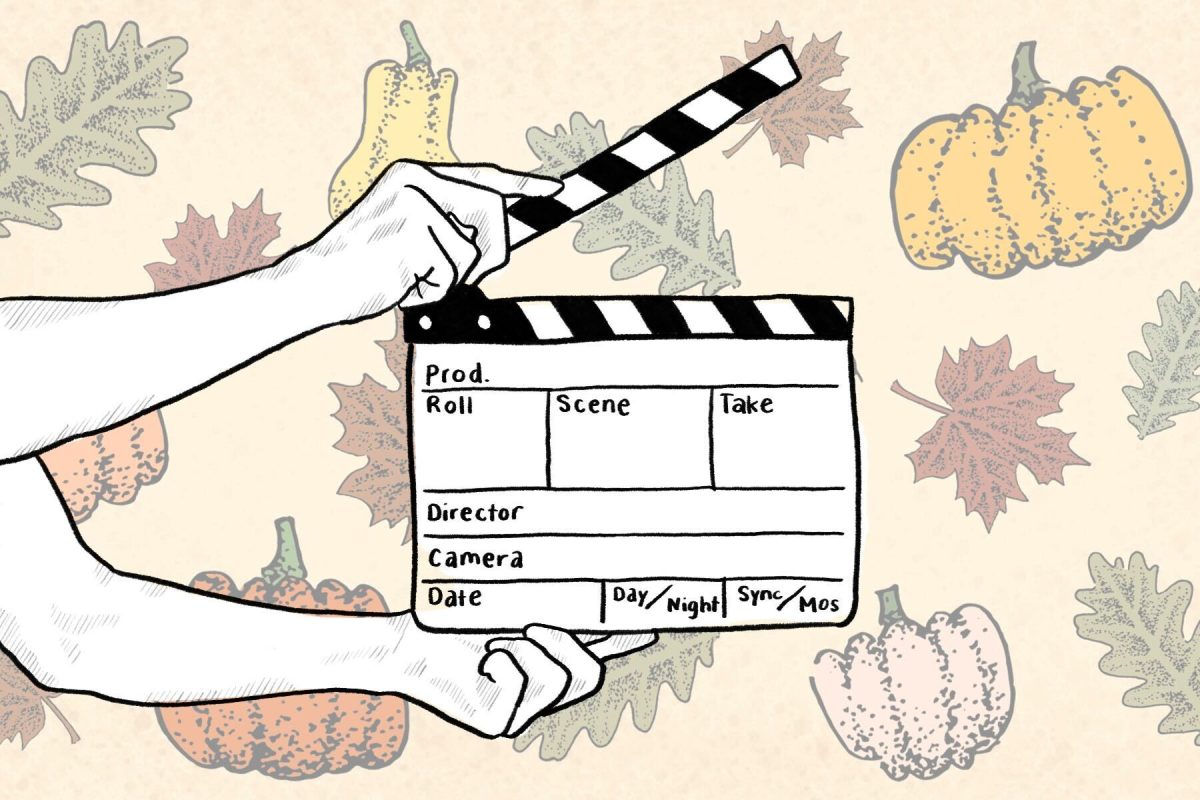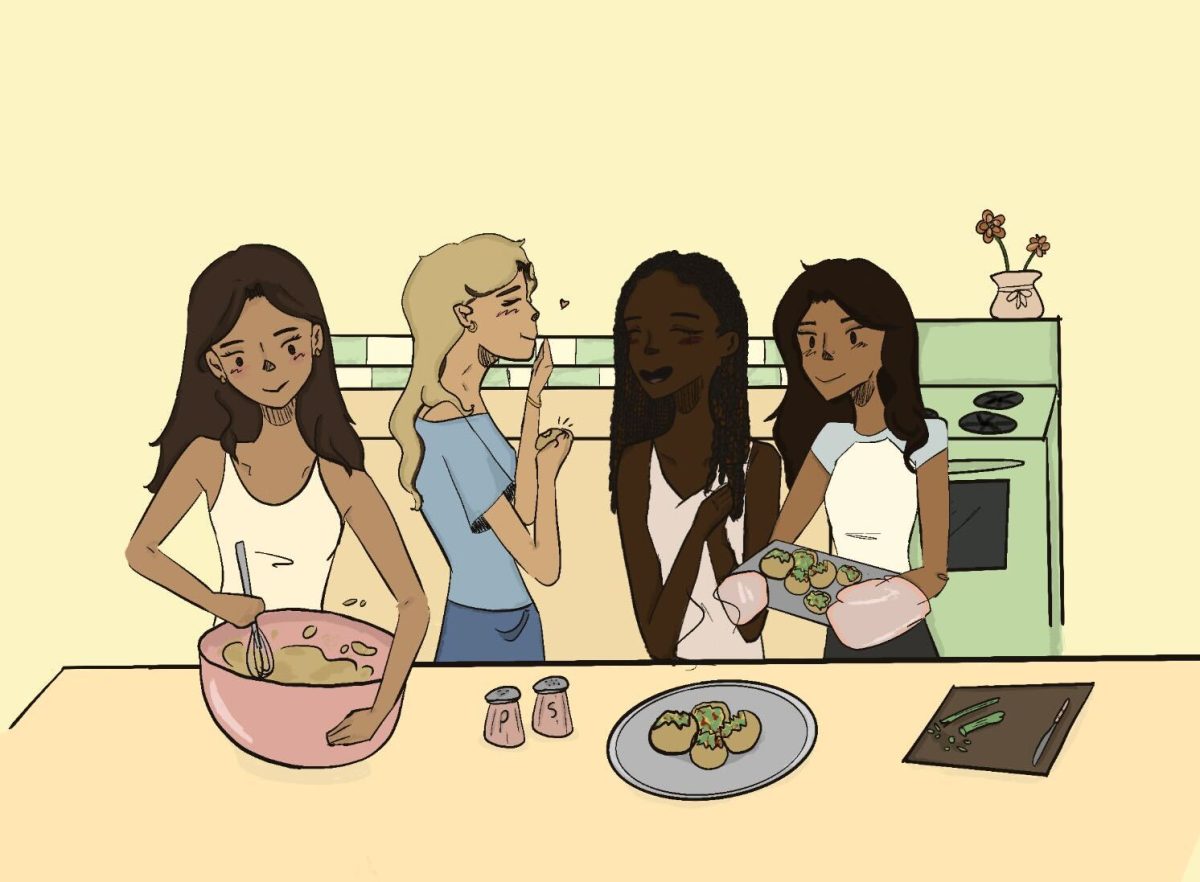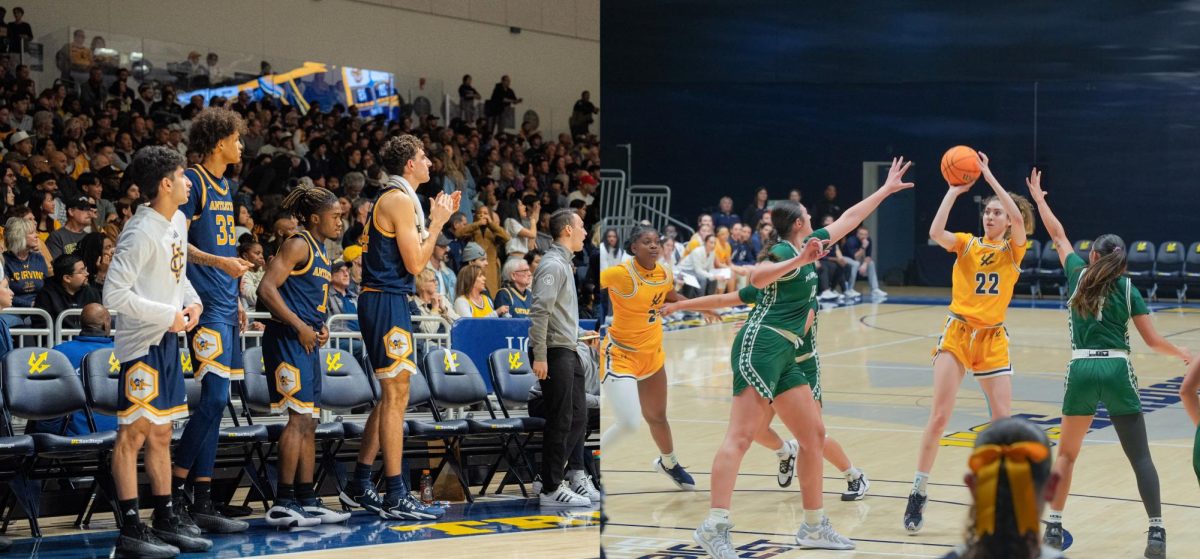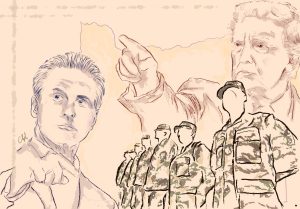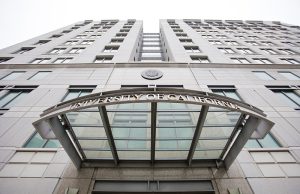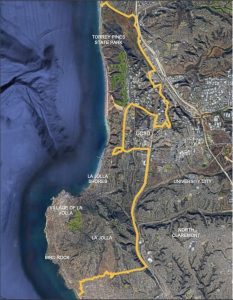“From Generation to Generation”: AS Hosts Racial Justice Panel with Angela Davis and Salih Muhammed
Nov 8, 2020
Dr. Angela Davis and Salih Muhammed spoke at a virtual panel on Nov. 2 titled “Racial Justice: A Holistic Discussion,” as part of the UC San Diego Associated Students Office of External Affairs’ “From Generation to Generation” event. Open to all University of California students, faculty, alumni, employees, and community members, the event centered around anti-Blackness and decoloniality.
Moderators Essence Carrington, a third year from Earl Warren College, and Rachel Asiedu, a fourth year from Earl Warren College, led the panelists in an hour-and-a-half-long discussion about decoloniality, assimilation, violence, intersectionality, and prison abolition. The discussion extended to the accessibility of knowledge among the working class, and concluded with a Q&A portion where panelists answered questions from the attendees.
Decoloniality refers to the separation of production of knowledge from Eurocentric processes and modes of colonization, such as white supremacy, land theft, and violence, among other things.
“How do we decolonize our minds?” Dr. Davis asked during the panel, referencing the works of author Ngugi Wa Thiong’o.
“In all honesty, we don’t know the face of decoloniality,” Muhammed added. “In truth, none of us — and historically, it hasn’t happened, right? So we don’t have a very clear road map of what it means and what it looks like to reverse the process and to reverse the trends of what has happened.”
The second half of the event was specifically for the Black community: a Night of Healing, hosted by Black Zen. The healing event came as a response to UCSD’s Counseling and Psychological Services’ inability to adequately treat racial trauma, which refers to the compounding mental and emotional injury that comes with regular exposure to racism as a person of color.
“We really created that because we started recognizing that CAPS and our university mental health services — at the moment, the feedback we’ve received was that it’s not necessarily equipped to help students who are processing racial trauma,” Saxena said. “There’s this belief right now that racial trauma only comes from death, but racial trauma comes from a variety of sources.”
“It was only Black UC students allowed, just for the sake of healing from a lot of stuff that was going on — we wanted that to be a private, safe space,” Asiedu explained. “It pretty much entailed having different meditation, different breathing exercises that we can do while we’re at home.”
“We know that that’s very important with the violence that’s going on right when you walk out the house,” Carrington said. “You kind of have to just be aware and even make sure you’re walking a certain way just so you are not perceived as violent in America.”
Dr. Davis, a UCSD Thurgood Marshall College alumna who graduated in 1969, was a founding member of the UCSD Black Student Union who advocated for the presence of Black studies on campus as well as greater university focus on the needs for BIPOC and white working class students. She was a part of the UCSD Lumumba-Zapata Coalition and Movement, which fought for a diverse, inclusive curriculum and admissions for the university’s third college, which would later be named Thurgood Marshall. While she was a graduate student at UCSD, Dr. Davis joined the Black Panther party and the Student Nonviolent Coordinating Committee.
“Dr. Davis is one of my biggest role models in terms of someone who didn’t allow her institution or her circumstances to cause her to conform to anything,” Asiedu shared. “She was willing to break the boundaries that she was a part of. To organize, she risked her job, her career, her life — she was on the FBI list because she was not well-liked in her time, but she didn’t care about that. She wanted to be an activist.”
What Carrington took away from moderating the discussion with Dr. Davis and Muhammed revolves around Dr. Davis’s ideas of re-learning and accountability.
“I learned in my approach to organizing and being an intellectual capitalist that I must be accessible to everyone and start with the foundational belief that everyone is smart, along with knowing that we (the masses and those privileged to go to college — not much of a distinction because again both very smart people, but current American modalities love class distinctions) but us both will move forward with love, mistakes, and resilience,” Carrington shared.
The A.S. Office of External Affairs developed the idea for the “From Generation to Generation event” after seeing inadequate action taken from the university following demands released by the BSU at UCSD on June 22.
“Many entities within our campus and throughout the UC System were quick to write statements promising solidarity and action, and the Black Student Union, along with our Black student body as a whole reported to see limited results from these promises,” Saxena said in her opening speech. “This, combined with the history of anti-Blackness on our campus and beyond, led us to develop part one of this event.”
“There was no action, besides painting the sidewalk like ‘Black Lives Matter,’ which was not really helpful,” Asiedu shared regarding the university’s response. “Another thing they did was doing an anti-Black challenge — a 21-day challenge, which […] the BSU found was not very effective.”
After the BSU demands were made in June, on Oct. 22, it was announced that Chancellor Pradeep K. Khosla and Executive Vice Chancellor Elizabeth Simmons committed to providing $2.5 million to the UCSD Black Studies Project over the span of five years.
The BSP is focused on research, scholarly collaboration and strengthening of Black Studies among undergraduates and graduates at UCSD alike.
The commitment from UCSD is intended to aid specifically in “multi-tiered fellowships, grants, research internships and mentorships in African American and Black Diaspora studies at all levels,” in order to encourage and foster academic and professional interaction and mentorship across all levels.
In a closing speech from grassroots activist and Thurgood Marshall student Huda Ahmed, she shed light on racist issues at UCSD and offered hopeful words for future organizations.
“The voices of the Black Diaspora has always been silenced,” Ahmed said. “And sure enough, even within a movement that has slowly become gentrified as its popularity grew, we still have to scream and shout just to be heard and understood. The worst of this issue is that it’s intersectional amongst every category of institution within our society. Whether ranging from education, from even campuses like UC San Diego itself, where Black and Indigenous students feel the need to scream and shout just to draw light to its historical and occurring racist, anti-BIPOC realities. ”
“Famously quoted by Assata Shakur,” Ahmed continued, “‘we have nothing to lose but our chains.’”
The “From Generation to Generation” event was co-sponsored by the BSP as well as the UCSD’s Department of Political Science, the African American Studies Minor, the Ethnic Studies Department, and the BSU. A recording of the panel was said to be made available to all attendees following the end of the meeting.
Image courtesy of the Bettmann Collection.
This article was updated at 4:55pm on November 8 to better reflect the stated viewpoints of those interviewed for this piece.


